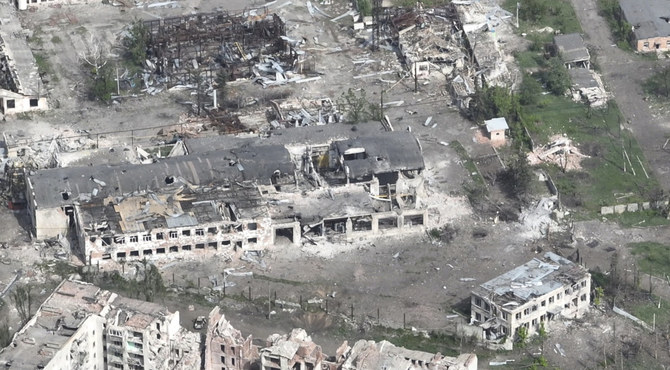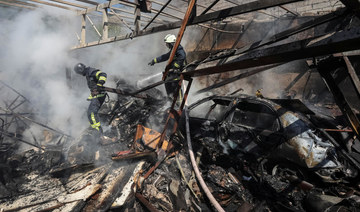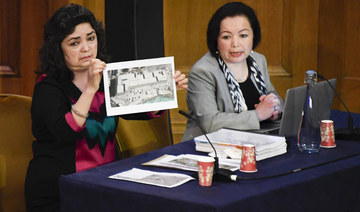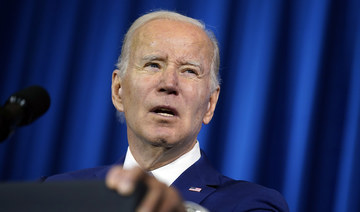KYIV, Ukraine: Months of relentless Russian artillery pounding have devastated a strategic city in eastern Ukraine, new drone footage obtained by The Associated Press shows, with barely a building left intact, homes and municipal offices charred and a town that once had a population of 12,000 now all but deserted.
The footage shows Chasiv Yar — set amid green fields and woodland — pounded into an apocalyptic vista. The destruction is reminiscent of the cities of Bakhmut and Avdiivka, which Ukraine yielded after months of bombardment and huge losses for both sides.
The strategically important city has been under attack by Russian forces for months. Capturing it would give Russia control of a hilltop from which it can attack other cities that form the backbone of Ukraine’s eastern defenses.
That would set the stage for a potentially broader Russian offensive that Ukrainian officials say could come as early as this month.
Russia launched waves of assaults on foot and in armored vehicles at Chasiv Yar’s outnumbered Ukrainian troops, who have run desperately short of ammunition while waiting for the US and other allies to send fresh supplies.
Rows of mid-rise apartment blocks in Chasiv Yar have been blackened by blasts, punched through with holes or reduced to piles of timber and masonry. Houses and civic buildings are heavily damaged. The golden dome of a church remains intact but the building appears badly damaged.
No soldiers or civilians were seen in the footage shot Monday and exclusively obtained by the AP, apart from a lone man walking down the middle of a road between wrecked structures.
Regional Gov. Vadym Filashkin said Wednesday on Ukrainian TV that 682 residents have held on in Chasiv Yar, living in “very difficult conditions.” The city had a pre-war population of over 12,500. Filashkin said that those remaining have lacked running water and power for over a year, and that it is “ever more difficult” for humanitarian aid to reach them.
The destruction underscores Russia’s scorched-earth tactics throughout more than two years of war, as its troops have killed and displaced thousands of civilians.
NATO Secretary-General Jens Stoltenberg acknowledged Monday that the delayed delivery of allies’ military aid to Ukraine had left the country at the mercy of the Kremlin’s bigger and better-equipped forces.
Ukraine and its Western partners are racing to deploy critical new military aid that can help check the slow but steady Russian advance as well as thwart drone and missile attacks.
Elsewhere, Ukrainian authorities reported that two civilians died and at least nine others, included an 11-year-old boy, were wounded Wednesday after Russian aerial guided bombs pummeled a village in the northeastern Kharkiv region.
According to Gov. Oleh Syniehubov, a 64-year-old man and 38-year-old woman — both locals — were killed after one of the bombs detonated near their car in Zolochiv, some 20 kilometers (12 miles) from the border with Russia.
In the southern Black Sea port of Odesa, at least 13 people were wounded after a Russian ballistic missile slammed into the city late Wednesday, regional Gov. Oleh Kiper said in a Telegram update. He did not say what had been hit, but reported the blast had sparked a major fire.
Videos circulating on social media showed huge plumes of smoke rising skywards at the site. Nova Poshta, a large Ukrainian postal and courier company, said in a Facebook post Wednesday that one of its sorting depots had been struck, but claimed no employees were among those hurt.
Odesa has been a frequent target for Russian firepower, with eight civilians killed by Russian missiles in the city over the past two days.





























